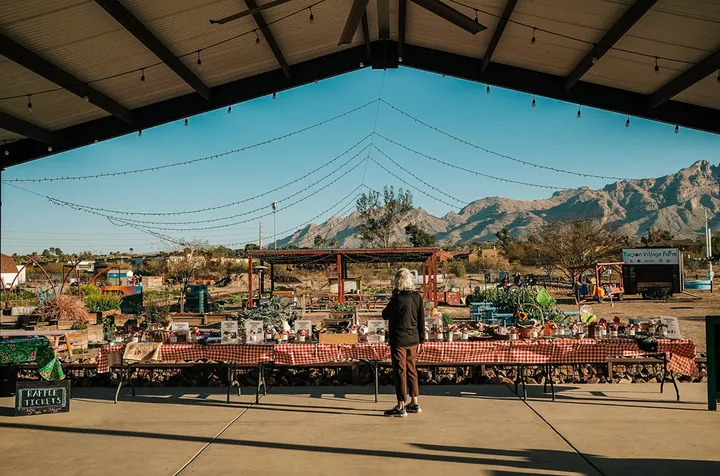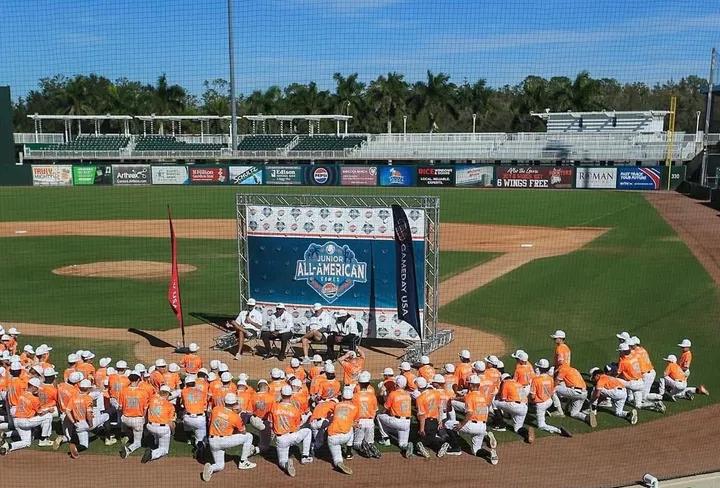Border mural project shines light on deported veterans
A mural project led by researcher Lizbeth De La Cruz Santana documents the stories of deported U.S. military veterans, highlighting the consequences of immigration policy through art and personal narratives.

Thousands of immigrants have served in the U.S. military, but for many, their reward wasn’t citizenship, it was deportation.
That stark reality is the focus of a mural project along the U.S.-Mexico border in Playas de Tijuana, where portraits of deported American veterans once lined the Mexican side of the border wall. Created by the veterans themselves, the artwork tells a story of patriotism, sacrifice and exile.
The Deported Veterans Diaspora is a mural project organized by Lizbeth De La Cruz Santana to bring awareness to the issue of veterans being deported. While the murals were taken down as part of the border wall reconstruction, they have been preserved at a museum in San Diego.
“The words ‘deported’ and ‘veteran’ should not go together,” said Santana. “Unfortunately, over the past 30 years, the U.S. has deported its own to their countries of origin all over the world … These portraits represent more than just faces, they tell the stories of patriotism, sacrifice, and the painful reality of deportation.”
Santana, a professor at the City University of New York, visited the University of Arizona this spring for a two-day event showcasing her research on deported veterans.
The multifaceted project incorporates visual storytelling, art and space for a forgotten community. Santana worked with deported veterans to document their experiences through multimedia narratives, exploring the complexities of life after deportation.
“These (deportation processes) are sometimes left to the legal experts. We don’t really hear the stories, so humanizing the process brings a different dimension,” said Javier Duran, director of the UA’s Confluencenter for Creative Inquiry.

Each year, approximately 5,000 non-citizen soldiers enlist in the U.S. military, adding to the 40,000 immigrants who already serve. Recruits are required to have U.S. residency to enroll in the military.
As of 2016, there were about 511,000 immigrant veterans, who made up about 20% of all Medal of Honor recipients, the highest distinction given in the military.
Many enter the military with the understanding that it is an automatic pathway to citizenship, some having even been promised citizenship by recruiters. But the process of naturalization for a military veteran is not automatic.
Once immigrant veterans return to the U.S., they are not only confronted with the reality of returning to civilian life after service, but also face the added risk of being deported from a country they defended to a country they might not even know.
“They grew up in this country, went to school … and eventually enlisted in the military because that’s what they wanted to do,” said Santana.
According to her research, many deported veterans arrived in the U.S. as children, having little to no memory of their home country.
“They have this double identity, people who serve in the U.S. armed forces but then also were childhood arrivals,” Santana said. “That means that the burden, the effects of deportation are even more punitive, because this is the only country that they've known. Being forced to return to another country — yes, they were born there, but they don't know it — it's a cultural shock, and also for their children.”

Rudi Richardson, a 68-year-old veteran, didn’t know he wasn’t a U.S. citizen until after he was honorably discharged from the military, having served at Fort Benning, Georgia, and later deploying to Germany.
In the years following his discharge, Richardson was diagnosed with bipolar disorder, developed an addiction and was “all over the place,” according to a recorded oral history with Santana.
He had a history of petty theft, which eventually escalated to a felony after he was caught stealing a coffee maker.
“I just couldn’t goddamn believe it,” he said in a recorded narrative for Santana’s project. “They’re going to deport me to Germany, to a country that I hadn’t been to, I couldn’t even speak the… language!”
Immigration policies enacted in 2004 and 2015 require agents to review and document veterans’ years of service, deployments and awards, and to escalate any cases involving veterans up the chain of command.
A study found that this often does not happen, and many times a person’s veteran status isn’t even considered.
“I (thought) maybe I might slip through the cracks and they might let me go,” Richardson said in the recording.
But that wasn’t the case, and in 2002 he was deported to Germany.
Richardson is one of 94,000 veterans who have been deported since 1996.

When he arrived in Germany, he was interrogated for hours by customs officers and referred to a homeless program. Shortly after, he moved to London because he couldn’t speak German and, according to Richardson, the Germans were “not nice to Black folks.”
Many cases are similar to Richardson’s: veterans dealing with post-traumatic stress and a lack of resources find themselves homeless, some developing substance abuse issues and committing petty crimes.
Despite dealing with the same struggles as other veterans returning to civilian life, immigrant veterans must also face challenges related to their immigration status, which can put them at risk of deportation for committing criminal offenses.
One in four veterans say that readjusting to civilian life is difficult. They face many challenges when reintegrating into society after deployment, such as physical, mental and financial struggles.
One in five veterans struggle with substance abuse after leaving the military, and about a third say they’ve had trouble paying bills — a statistic that disproportionately affects veterans of color.
Another study found a relationship between veterans with PTSD, anxiety and homelessness.
“They are victims of a system that is very punitive to people who grew up in this country, served in the armed forces and then face deportation for whatever reason that was,” Santana said. “Many of them make the case that it was due to PTSD … Returning home after service and not having the care to literally integrate back home — that was one of the reasons.”
In 2019, immigrant soldiers were denied citizenship at higher rates than civilians, according to U.S. Citizenship and Immigration Services data.

Applications for citizenship by veterans are usually denied because applicants are not found to demonstrate “good moral character,” most likely because of previous criminal convictions following their military service.
Under current law, honorable service is not sufficient to prove good moral character.
“We're just literally setting them up for failure,” Santana said. “The fact is that if they don't get their citizenship, then they get deported after serving time. It’s this idea of triple jeopardy, right? They go to jail or prison, then they go to a detention center, and then they get their immigration status revoked and then deported.”
A study by UCLA found that the federal government fails immigrant veterans by not ensuring that service members are naturalized during their military careers or shortly thereafter, and by failing to provide clear and accurate information about naturalization. It also found that the federal government lost, misplaced or failed to file the applications of many veterans who did apply for naturalization.
And while there have been legislative efforts to protect deported veterans, there has not been much traction.
“Congressman Raúl Grijalva worked really hard on a couple of bills that would benefit veterans, and he was also trying to work on a bill that would facilitate the return of deported veterans,” said the Confluencenter’s Duran.
One of the hindrances to progress is that deported veterans are not “poster babies,” according to Santana, who said it’s hard to get people on board when they see a criminal history.
“Do we have a moral obligation to them? I believe we do because they grew up here,” she said. “If they had a criminal record, they had it here, not in another country. They learned these things here … They became criminals here in this country, so why is it easy for us to say we're just going to deport you when we raised you here?”
Once veterans are deported, they face a new set of challenges: the lack of a support system like family or friends, the loss of VA benefits and care, and threats from gangs and drug cartels that seek to recruit them because of their military training.
Many “still stay loyal to this country,” Santana said. “Deportation doesn't take away the fact that their identity is U.S. American and that they're forced to move abroad and (live) in exile, as many of them say.”

She points to her research, which turned up evidence of deported veterans celebrating July 4 in Mexico with hot dogs and hamburgers — things that remind them of the country they were forced to leave behind.
Many deported veterans wait in exile, some having filed for humanitarian parole and others knowing the only way they’ll ever return to U.S. soil is in a casket.
Richardson died in 2024 at 68 years old, more than two decades after he’d been deported to Germany and just hours after he received a call that his parole request had been granted and he would be able to return to the U.S.
“I done already told my children, I said, ‘If you ever bury me and have a VA thank (you), make sure you don’t put that flag in my … coffin,’” he said in a recorded interview for Santana’s project. “I don’t want it there because you didn’t respect me.How the hell do you think I’m gonna respect you?”
In July 2021, the Biden administration established the Immigrant Military Members and Veterans Initiative, which sought to repatriate deported veterans and help them access benefits, including immigration and naturalization assistance. As of December 2023, 93 deported veterans had been returned to the U.S. through the initiative.
Groups have rallied in support of veterans since the announcement of a 15% department-wide cut, in line with other cuts ordered by the Trump administration.
Santana said she’s not very optimistic that there will be movement on this issue, especially given the current political climate regarding immigration.
But she said a seedling of hope lies with the children of deported veterans, who continue to advocate for the return of their parents.
“Growing up you always hear about how serving in the U.S. military kind of is like the ultimate way to show your love and appreciation to this country,” Santana said. “If that's not enough, then what is?”
Susan Barnett is Deputy Editor of Tucson Spotlight and a University of Arizona alum. Contact her at susan@tucsonspotlight.org.
Tucson Spotlight is a community-based newsroom that provides paid opportunities for students and rising journalists in Southern Arizona. Please support our work with a paid subscription.



